SF Gateway Author of the Week: Arthur C. Clarke
 Born December 16th, 1917, our Author of the Week, the late, great Sir Arthur C. Clarke would have been 95 last weekend. Sadly, Sir Arthur has been gone these last four years, but his legacy remains.
Born December 16th, 1917, our Author of the Week, the late, great Sir Arthur C. Clarke would have been 95 last weekend. Sadly, Sir Arthur has been gone these last four years, but his legacy remains.
Many of our finest SF writers acknowledge his influence, just as Clarke, himself, acknowledged the influence of Olaf Stapledon and others. The SF Gateway’s own Stephen Baxter – who collaborated with Clarke on a number of books – and the multi-award-winning Greg Bear are just two who have, at some point, been feted as ‘the heir to Arthur C. Clarke’, and Arthur C. Clarke Award-winner, Paul McAuley, has just posted a review of Clarke’s Rendezvous With Rama over on his blog.
Although it has become fashionable, of late, to criticise many writers of Clarke’s vintage as producers of clunky prose and wooden characterisation held aloft by clever Big Ideas, I think this line of thought misses the point. As well criticise a banana for not banging a nail in properly as criticise Arthur C. Clarke for not providing his characters with nuanced personalities. That’s not what they’re there for. If you want to bang a nail in, get a hammer. Clarke’s protagonists generally had as much personality as was necessary to get the story told – no more, no less. He was also writing, for the most part, during an era when word-bloat had yet to set in; when I re-read Childhood’s End after Clarke passed away in March 2008, I was struck by how incredibly slim the novel was (something that never occurred to me the first two times I read it) and I couldn’t help but admire the economy of language. A 21st century writer attempting to cover the themes Clarke explored in Childhood’s End would almost certainly project a trilogy.
 There is, however, some credence to the view that Arthur C. Clarke was at his best in the short form. As wonderful as many of his novels are – for example: the two already mentioned, The City and the Stars (current SF Masterwork of the Week), The Fountains of Paradise – the first book I picked up when I learned of his death was The Collected Stories of Arthur C. Clarke, where I renewed acquaintances with some old friends. To name but a few: ‘The Wall of Darkness’, ‘All the Time in the World’, ‘Expedition to Earth’ and, of course, ‘The Sentinel’, ‘The Nine Billion Names of God’ and ‘The Star’. They were as potent as ever and I remain as convinced as ever that nobody does last-line twists like Arthur C. Clarke.
There is, however, some credence to the view that Arthur C. Clarke was at his best in the short form. As wonderful as many of his novels are – for example: the two already mentioned, The City and the Stars (current SF Masterwork of the Week), The Fountains of Paradise – the first book I picked up when I learned of his death was The Collected Stories of Arthur C. Clarke, where I renewed acquaintances with some old friends. To name but a few: ‘The Wall of Darkness’, ‘All the Time in the World’, ‘Expedition to Earth’ and, of course, ‘The Sentinel’, ‘The Nine Billion Names of God’ and ‘The Star’. They were as potent as ever and I remain as convinced as ever that nobody does last-line twists like Arthur C. Clarke.
I could waffle on for pages about Arthur C. Clarke (and, indeed, have done, in the past) but instead I’ll exhort you to let the man’s work speak for itself, and go read his novels and short stories. And if you want to know more about the man behind the books, you could do worse than visit his author entry on The Encyclopedia of Science Fiction or consult his autobiography.

